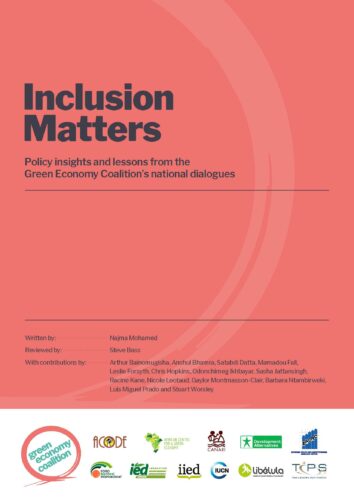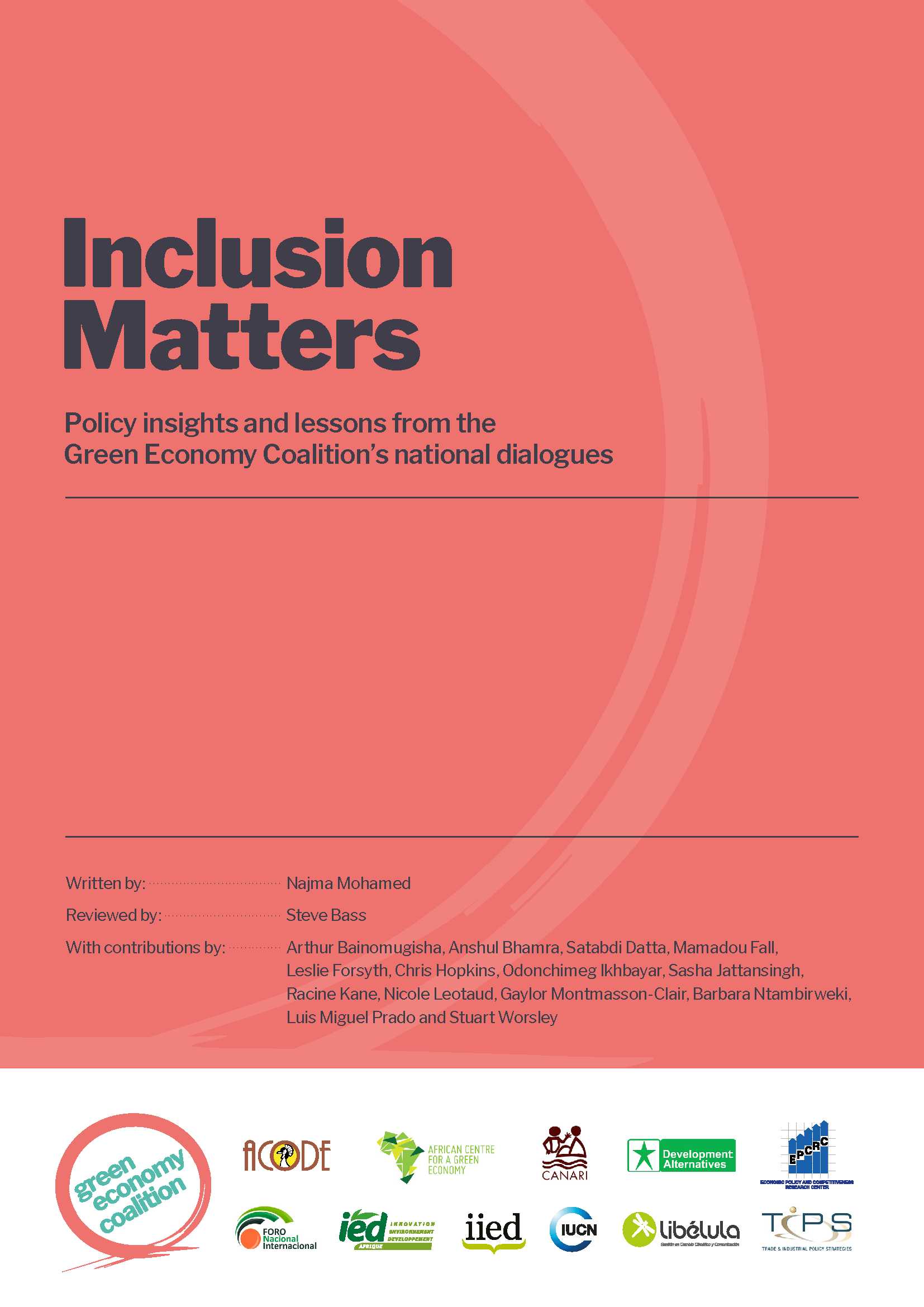The Green Economy Coalition documented the stories of seven civil society-led national and regional dialogue processes in Asia, Africa, Latin America and the Caribbean. Each story describes how pe ople – small and informal enterprises, women, local communities, marginalised populations – have been able to get a stake and have their say in green economic policy processes, and offers new evidence of how social inclusion has driven more transformative policymaking. The paper draws together this experience and presents overall policy insights, lessons and recommendations on how people’s values, priorities, and capabilities can best shape green economy policies.
ople – small and informal enterprises, women, local communities, marginalised populations – have been able to get a stake and have their say in green economic policy processes, and offers new evidence of how social inclusion has driven more transformative policymaking. The paper draws together this experience and presents overall policy insights, lessons and recommendations on how people’s values, priorities, and capabilities can best shape green economy policies.
What does it take to structure an inclusive transition?
An Inclusive Green Economy approach sets out to ensure that people – particularly the poorest, women, marginalised communities and small and informal enterprises – benefit from green policymaking. The report summarises ten policy insights:
- An inclusive transition to a green economy will not come about through one-off policy consultations. Inclusion needs to be embedded in governance systems.
- Robust and well-resourced institutional mechanisms, such as dialogue platforms, action learning groups and consultation forums, are needed to provide for greater stakeholder empowerment in policy processes.
- Involving stakeholders from the outset of a policy initiative so that they can be part of the diagnosis of the problem is key to achieving inclusion.
- By focusing on ‘nexus issues’ that link social, economic and environmental issues – such as health or entrepreneurship – decision makers can achieve multiple policy impacts.
- Transformative green economy policy agendas are often incubated at local and state level rather than always starting in central government.
- Dialogue facilitators, or Hubs, need to be both well rooted within civil society as well as confident to convene higher level decision makers.
- Highlighting society’s visions, values and priorities creates a ‘demand-pull’ on policy that makes otherwise ‘top-down’ decision-making more robust and sustainable.
- Stakeholders are most likely to engage in green economy dialogues when they centre on key local sectors, such as agriculture or fisheries, and support more devolved decision-making.
- Local green enterprises can be attracted to actively engage in dialogue processes, and are often quick to take ownership and pioneer new efforts.
- For maximum effectiveness, country and regional technical assistance programmes must prioritise inclusion, and the participatory policymaking approaches to achieve it.
The GEC dialogues programme has been convened by civil society partners in 7 ‘Hub’ countries and regions and is funded by the European Commission.

